2013 NEALS Conference at the Hopkins School
Independent Schools Focus on Dyslexia
On Monday, April 15th, the Hopkins School in New Haven hosted the 2013 Spring Conference of the NorthEast Association of Learning Specialists (NEALS) in the beautiful, sun-filled Heath Commons of the school. The attendees were given a warm and enthusiastic welcome from Barbara Riley, Head of Hopkins School, which set the tone for this most unusual and well-received conference. Conference Chair Matt Treat, Hopkins School Director of Academic Support and NEALS Board Member, added his welcome explaining the planning and objectives of this NEALS conference. Additional welcomes were offered by Susan Ross, NEALS Board President, followed by a special honor extended to Dr. Barbara Kenefick, NEALS founder.
Drs. Sally and Bennett Shaywitz presented the Keynote Address, “Transforming Dyslexia from a Liability to an Asset,” to the large group of deeply interested and engaged educators. A special screening of the film “The Big Picture: Rethinking Dyslexia” followed the keynote. The attendees then listened intently to a highly articulate, insightful panel comprised of Yale undergraduates and professional school students along with the Director of the Yale Resource Office on Disabilities, Judy York, discussing “21st Century Students Overcoming Dyslexia.” Each of the students discussed in a personal way the effects of dyslexia on his or her life, including at Yale. A major focus of the panel was the negative impact of requirements to learn a foreign language and the extremely positive impact of Yale’s policy regarding dyslexia and foreign language requirements.
A New Understanding: A Giant Step Forward
Yale’s Policy Granting Partial Waivers of the Foreign Language Requirement to Students who are Dyslexic
Students spoke of the impact of the diagnosis of dyslexia on raising their self-awareness and sense of empowerment, of their lack of reading fluency, of their perseverance, and particularly, the negative influence of their profound and persistent difficulties in learning a foreign language, emphasizing the extremely beneficial role of Yale’s policy of granting a partial waiver of the foreign language requirement for dyslexic students. Judy York explained that, at Yale, there is a procedure in place for all students who apply for a waiver and that the policy has benefited the university, the foreign language department, and the students.
Dr. Sally Shaywitz explained that the policy, now in place for over a decade, is based on the best scientific knowledge of dyslexia and of the acquisition of a second language. She explained that science has uncovered the basic difficulty in dyslexia—getting to the individual sounds of spoken words. To read, a child must first develop the awareness that spoken words are made of separate sounds, individual particles called phonemes. Typical readers develop this awareness very early, by first grade, while dyslexic readers continue to struggle with developing such awareness. Dr. Shaywitz stressed it is necessary to pull apart the sounds in order to be able to attach each letter to its individual sound(s). To be able to read most words never before encountered, the aspiring reader must attach the letters to their sounds so that they can then sound out the word. Without such a capacity, the reader is consigned to reading only those words that she or he has previously encountered and memorized. As children progress in school, they come across more and more words that they have never before seen and, unless they can sound the word out, they are stymied. Similarly, science has learned that in order to utter a spoken word, the speaker must first be able to access and retrieve the specific sounds making up the word; dyslexics often experience profound difficulty in accessing and retrieving these sounds.
Considering the profound impact dyslexia has on both spoken and written language acquisition, and from both an educational and a scientific perspective, it makes little to no sense to impose a foreign language requirement on students who are dyslexic and, indeed, is counterproductive to the aims of a liberal education in the 21st century. Many of the attendees indicated that their schools were in the process of considering a partial waiver of the foreign language requirement, and found that the panelists’ very positive, informative, and stimulating discussion of their personal experiences helped these educators understand not only the scientific basis of the foreign language waiver but how important this is to the education of the student with dyslexia.
Open Minds Lead to Positive Steps
As one attendee noted, “Just because we have been mandating a foreign language requirement forever shouldn’t mean that we can’t open our ears and minds and incorporate the newest, most cutting edge scientific and educational knowledge into our curriculums. Hearing these students, knowing Yale’s procedure, and understanding the scientific basis of granting a partial waiver of the foreign language and its positive impact on bright, eager dyslexic students answer any questions I may have had. I can’t wait to get back to my school and share this exciting news. Change is good and should not be avoided when it makes so much sense.”
Another attendee commented, “What was shared completely changed the way I think about dyslexia.”
Photos from the 2013 Spring Conference of the NorthEast Association of Learning Specialists (NEALS), held at the Hopkins School in New Haven on April 15th
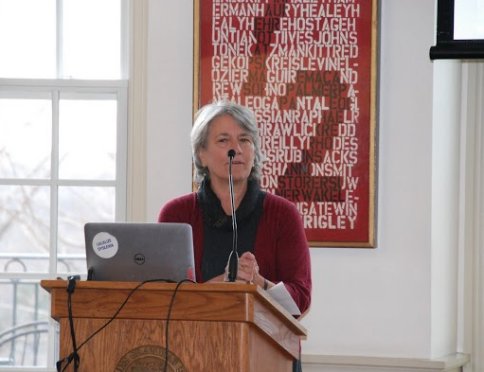
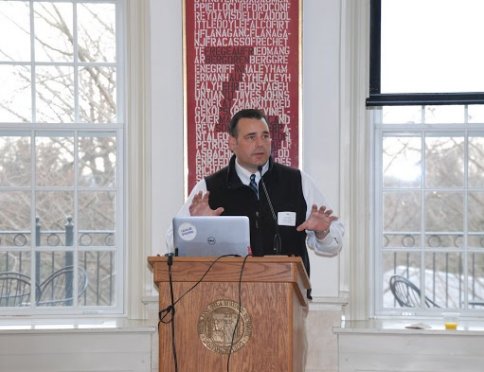

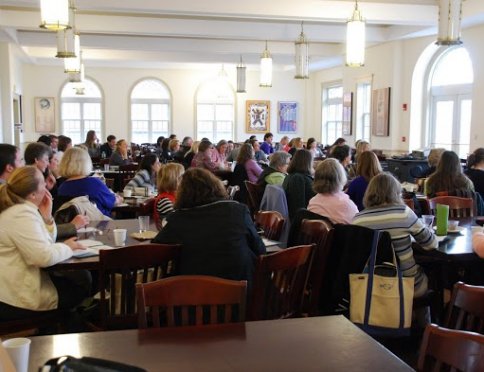

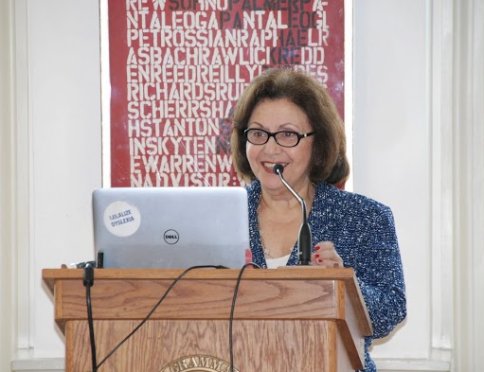
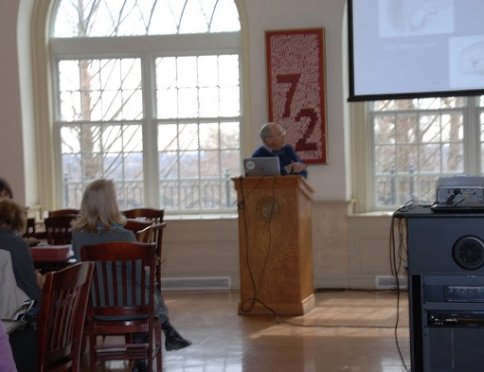
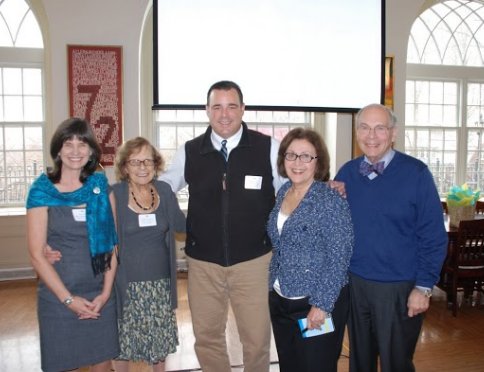
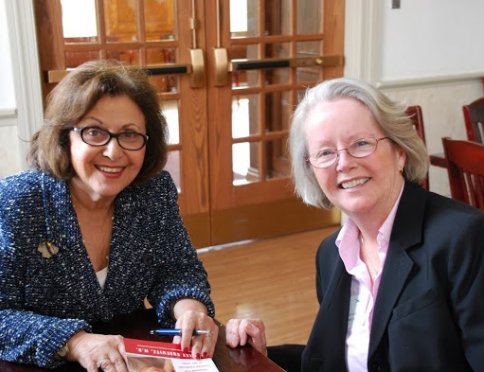
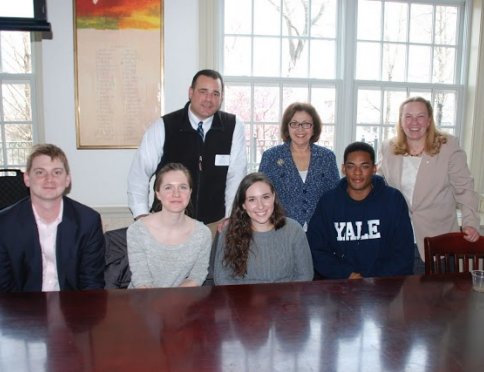










Related
Giving to the Yale Center for Dyslexia & Creativity
The generosity of friends of the Center inspires us and has allowed our Center to make major contributions …
Read MoreDyslexia and Bullying
Bullying intersects with dyslexia particularly in school settings where far too often dyslexia is not identified, the word, dyslexia, not used, and the associated symptoms not addressed.
Read More2016: An Extraordinary Year
This past year was truly extraordinary for all those who care deeply about helping dyslexic boys and girls, men and women get the support they need to reach their full potential. At the Yale Center for Dyslexia & Creativity, our focus has always been on translating scientific knowledge into action. In 2016 that approach paid off in powerful ways from the…
Read MoreRemembering Matthew Badger
It is with profound sadness we share with you the passing of Matthew Badger, a great champion for all who are dyslexic or care for children with dyslexia. Although you may have heard of Matthew from reading about him in newspapers, we were fortunate to get to know him on a more personal level through a mutual friend, Beth Ravelli…
Read More